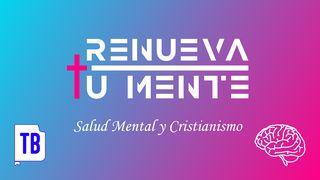Paul Vs. James - An 8-Day Study On Faith & Works By Chris BrunoMuestra

DAY EIGHT
James and Paul grew up as passionate followers of the God of Israel, devoted to the purity of the nation, but their lives had been redirected by the Messiah Jesus. They now recognized that God’s purposes were moving beyond Israel to the Gentile nations. God had called Paul to lead the way in this mission to the nations, and they both agreed on this when they met privately in Jerusalem.
Based on the shared strategy that they reached at this meeting, it should not surprise us to see that when Paul and Barnabas returned to Antioch, they were soon sent out on what we often call Paul’s first missionary journey (Acts 13:1–3). It is right for us to emphasize that the church in Antioch was the primary sender and supporter for Paul and Barnabas. We can also see that this mission was part of the shared missional strategy that Paul and the apostles in Jerusalem, including James, worked out in their earlier meeting.
This strategy was reaffirmed later in Acts, after Paul and Barnabas had returned from their mission. As they traveled to the island of Cyprus and through the southeastern part of modern Turkey preaching the gospel, both Jews and Gentiles were turning to Jesus the Messiah in faith and repentance. Soon, Paul and Barnabas were not just dealing with individual cases like Titus. Whole family groups were believing in Jesus and being baptized; as Luke describes it in Acts 14:27, God “had opened a door of faith to the Gentiles.”
When word about this movement among the Gentiles reached Jerusalem, some Jewish Christians insisted that to be a full-fledged member of God’s people, you still had to become a part of Israel. This was just the opposite of what Paul and James had agreed on earlier. But that agreement was reached in a private meeting with just a few apostles and their close coworkers; now it was time for the whole church to consider the role of the Gentiles in the end-time people of God.
After the apostles and other church elders gathered together in Acts 15, there was “much debate” (Acts 15:7). As the room began to quiet down, Peter stood up to proclaim how God had given the gift of the Holy Spirit to the Gentiles. Keep in mind that earlier in the book, in Acts 2, Peter saw the outpouring of the Holy Spirit as the sign that God was fulfilling His eschatological promises to Israel (vv. 17–21). Now he was saying that Israel’s eschatological gift was also being given to Gentiles without them obeying the Law!
Paul and Barnabas then related their experience on their missionary journey. They may have even described their strategy for reaching the Gentiles. After he heard this report, James again affirmed his agreement with Paul. He saw the inclusion of the Gentiles as the fulfillment of Amos 9:11–12, when the “booth of David that is fallen” was restored in the resurrection, ascension, and reign of Jesus. As a result of this, God was calling “all the Gentiles who are called by my name” (Acts 15:16–17). The Jewish leaders of the early Christian church all agreed: through the risen Messiah Jesus, God was saving the Gentiles, and Paul’s mission was a key part of God’s redemptive plan.
James and Paul—and the other apostles for that matter— agreed that when God keeps His new-covenant promises in the reign of Jesus, the true King of Israel, the inclusion of the Gentiles in the people of God results. Not only that, but they are included as covenant members with all the rights and privileges thereunto, without converting to Judaism, without being circumcised, without keeping the Mosaic Law, and so on. Nothing in the New Testament gives us a hint that James and Paul ever disagreed on this question. While Galatians does mention that some “men [who] came from James” were teaching differently (Gal. 2:12), nothing directly attributed to James insinuates that he ever had anything other than total agreement with Paul on this question, and the decision of the Jerusalem Council affirmed this agreement.
James and Paul agreed that God was fulfilling Old Testament promises by calling Gentiles to follow Israel’s Messiah without becoming citizens of Israel. They also agreed that it was Paul’s primary calling to bring the gospel of Jesus to these Gentiles, while James and some of the other leading apostles would continue to focus on the Jews. This does not mean that Paul and James agreed about everything immediately every time they were together. I’m sure that Paul’s travels and experiences shaped him in a way that James, who doesn’t seem to have ever traveled out of Palestine, did not understand. In spite of this, they remained united in their message and mission.
As we saw in the previous chapters, both of them taught about the intersecting themes of the new covenant, the Law, and Christian obedience in a remarkably similar way. Both of them clearly taught that Jesus’ ministry, death, resurrection, and reign had brought in the age of new-covenant fulfillment. Even though they use somewhat different language to talk about it at times, both James and Paul allude to the new-covenant promises from Jeremiah 31 and other Old Testament prophets. Through Jesus, the new covenant has come, the law has been written on our hearts, and God has given a heart of flesh to replace our heart of stone.
For both James and Paul, the fulfillment of the new covenant and the law written on our hearts means that Christian obedience is a necessary part of following Jesus. Both Paul and James affirm that true faith in Jesus is demonstrated by a life marked by faithfulness. This does not mean we are perfect or sinless, because both of them also speak of the need for forgiveness (see, for example, Eph. 4:32 and James 5:15). As we delve more deeply into their writings in part 2, we’ll see the new covenant, the Law, and Christian obedience all at work again. For now, we can see Paul and James are singing the same tune on these three interrelated themes.
You’ve been reading a YouVersion plan from Part One of the book “Paul vs. James” by Chris Bruno. In Part Two, Chris Bruno will dive deeper into the Letters and Theology of James and Paul, and then examine the legacy of these men in Part Three. If you’re interested in reading further, you can pick up a copy of the book at https://www.moodypublishers.com/books/current-issues/paul-vs.-james/
Escritura
Acerca de este Plan

This study will give you a taste of the ongoing faith and works debate and delve into some of the differences between Paul and James, the biblical characters of the New Testament.
More
Planes relacionados

La Compasión Por Encima De La Crítica: Ver La Ansiedad Desde Una Nueva Perspectiva

De orilla a orilla: un viaje hacia la reconciliación

De La Vergüenza a La Seguridad

Una Oración Bíblica Por Los Esposos

Amando Más La Palabra De Dios

Nuevos Comienzos Con Dios

Rescatados Por Gracia

Amistades Que Edifican

Eclesiastés Consejos Para La Vida
